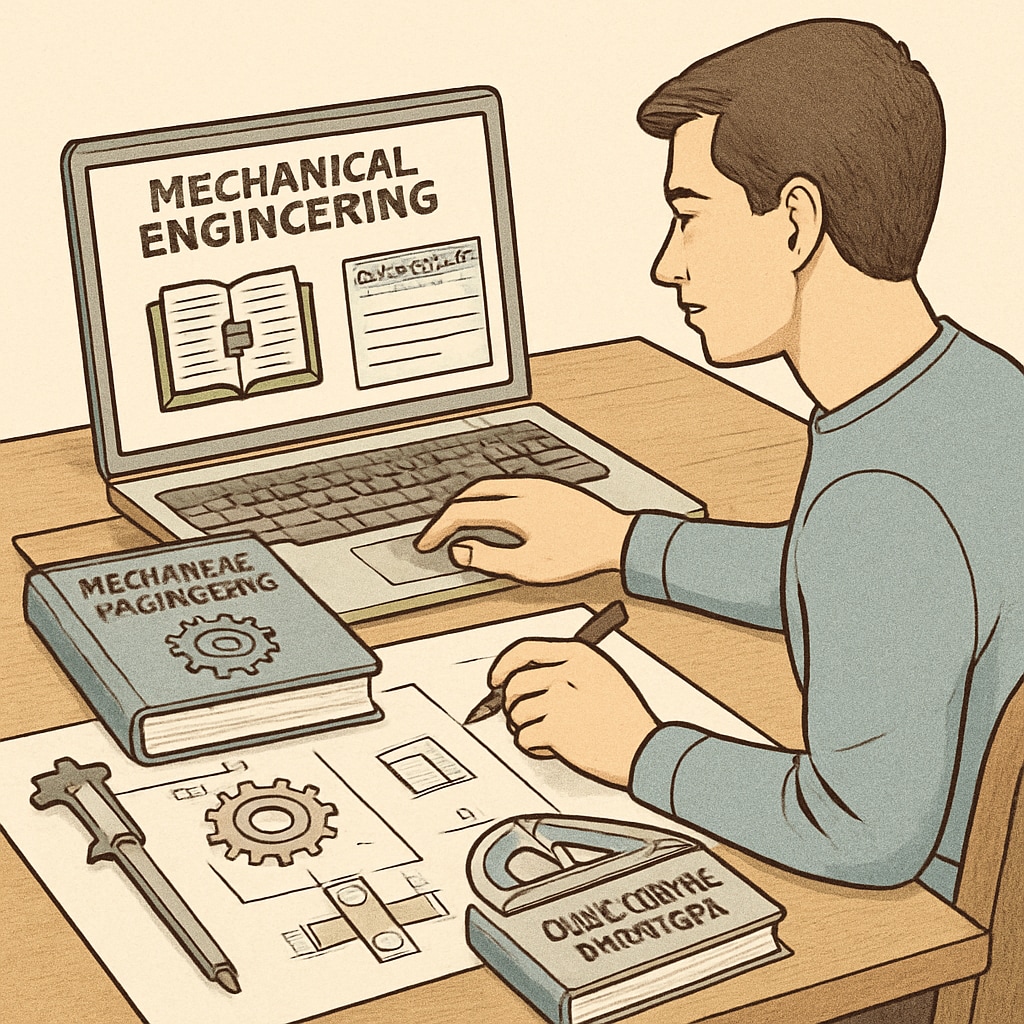In today’s competitive job market, enhancing career prospects requires strategic planning and adaptability. One such strategy involves pursuing an online degree alongside a primary major. This approach, particularly valuable in fields like mechanical engineering, offers a unique pathway to developing cross-disciplinary skills that can elevate career opportunities. But is it worth the time and effort? This article delves into how students, starting as early as the K12 stage, can prepare for this dual-degree journey, ensuring long-term success through personalized strategies and skill development.
The Benefits of Pursuing an Online Degree Alongside Your Major
The concept of earning an online degree while focusing on a primary major has gained traction in recent years. For example, a mechanical engineering student may benefit from pairing their technical expertise with a business or data science degree. This combination broadens their skillset, making them more versatile in the job market. According to Britannica, online learning offers flexibility, allowing students to access quality education without disrupting their primary studies.
Key advantages include:
- Enhanced Career Competitiveness: Employers often favor candidates with multidisciplinary skills.
- Flexibility: Online programs enable students to balance their primary education with additional studies.
- Cost Efficiency: Many online degrees are more affordable than traditional programs.

Preparing for a Dual-Degree Journey During K12 Education
Planning for a dual-degree strategy should start as early as the K12 stage. Early preparation helps students identify their interests and strengths while exploring cross-disciplinary opportunities. For instance, a high school student interested in mechanical engineering might also develop coding or entrepreneurial skills, paving the way for future online learning in complementary fields.
Here’s how K12 students can prepare:
- Skill Exploration: Engage in extracurricular activities like robotics, coding camps, or business clubs.
- Academic Planning: Choose elective courses that align with potential dual-degree interests.
- Time Management Skills: Practice balancing multiple commitments to prepare for online degree workloads.

Choosing the Right Online Degree for Your Career Goals
Selecting the right online degree to complement a primary major is crucial. For mechanical engineering students, fields like computer science, business management, or environmental studies may provide valuable cross-disciplinary insights. Platforms such as Wikipedia highlight the diversity of online degree programs available, making it easier for students to tailor their choices to career aspirations.
Factors to consider when choosing an online degree:
- Relevance: Ensure the additional degree aligns with future career goals.
- Accreditation: Choose programs from reputable institutions to guarantee quality education.
- Flexibility: Opt for courses that fit seamlessly into your existing schedule and commitments.
Conclusion: Is the Investment Worth It?
Pursuing an online degree alongside a primary major can be a game-changer for career competitiveness. By starting early in the K12 stage, students can develop the skills and mindset needed for this ambitious path. While the journey requires dedication and careful planning, the long-term benefits—ranging from enhanced employability to broader career options—make it a worthwhile investment. Ultimately, the dual-degree strategy empowers students to stand out in fields like mechanical engineering and beyond, securing their place in an ever-evolving job market.
As a result, whether you’re a high school student exploring possibilities or a college student considering an online program, remember that the key lies in strategic planning, adaptability, and commitment to lifelong learning.


